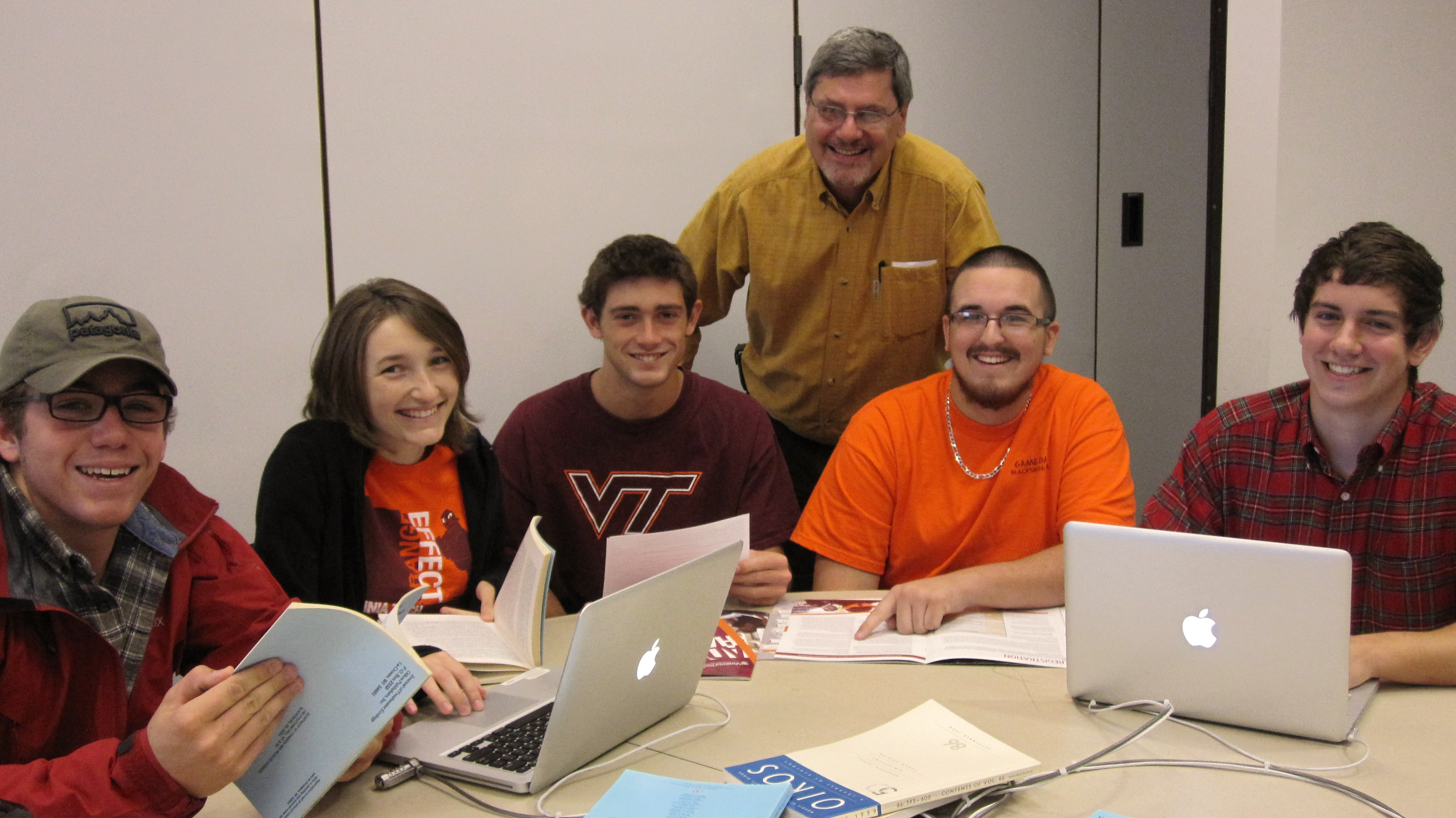First Year Experiences: College of Natural Resources and Environment known for personalized mentoring

As the university places a greater emphasis on preparing incoming students for the rigors of college life, several faculty members in the College of Natural Resources and Environment are welcoming their next group of first-year students with the personalized, collegial atmosphere of learning that the college has always epitomized.
Professor Donald Orth in the Department of Fish and Wildlife Conservation spearheads the college’s First Year Experiences program, titled Invent the Sustainable Future. He noted that there is strong evidence that many students struggle during their transition to college.
“The reasons are as varied as the students,” he explained. “This is one reason we have stepped up our efforts to recruit and train peer mentors to assist us in the First Year Experiences course.”
“In our survey of first-year students,” Orth continued, “many responded favorably regarding our peer mentors. One student wrote, ‘Yes, it is a good idea to have a peer mentor in the class. It is less intimidating to talk to a mentor than a professor in your first year of college when you are trying to figure everything out. Mentors are like an automatic friend and therapist because they have just been through it all.’”
Orth said that while much has been written about the Net Generation, it is clear that despite the abilities of these 18-year-olds, they really need good mentors. “This is the largest generation in American history,” Orth pointed out, “bigger than the Baby Boomers and likely to have a more significant effect.”
Established in 2011 with a grant from the university’s Office of First Year Experiences, the college’s program is aimed at helping students adopt sustainable learning strategies. Although it is not mandatory, the program is recommended for all incoming freshmen and transfer students, and can be taken for course credit. “The program helps students develop their sense of identity, relate to the college as their home, and encourage their involvement in relevant programs,” Orth explained.
“The distinctive element of the Invent the Sustainable Future program,” Orth continued, “is that we encourage our students to include many high-impact educational practices, such as undergraduate research, cooperative education, internships, summer jobs, service learning, and study abroad. We have more first-year students landing awesome internships in their first summer as a college student because we have invested so much effort into prior planning.”
Another major innovation Orth has been working on is having students develop an ePortfolio, a digital collection of their work that can follow them all through their college years and careers. “This is a valuable tool that will give them a leg up in the job market,” he stressed.
Associate Professor Eric Wiseman and teaching assistant Kimberly Cowgill of the Department of Forest Resources and Environmental Conservation, and Professor Dean Stauffer, associate dean of academic programs, serve as instructors along with Orth.
“We strive to push students out of their comfort zones with learning and problem solving,” Wiseman said. “For many freshmen, it can be tough to transition from the high school learning model to the college learning model. We’re trying to engage them in this transition and help them discover strategies to be successful.”
Student response to the program has also been positive while also highlighting areas for improvement. One student described a valuable lesson learned: “Probably the most motivational speaker that we have had . . . was Dean Stauffer. Throughout the course he came in from time to time with a good story or life lesson, each of which was truly fascinating. Probably the most influential talk he gave was a metaphor about cycling. Essentially, he gave our class very important advice about pacing ourselves properly, and making sure to take our time with things. Looking back at my first semester, his best advice was to ‘pedal downhill.’ In other words, when things are easier, you should take that time and go over things to make sure you know them when you aren’t stressing about an exam. I will definitely consider what he said for next semester.”
The instructors are committed to building on the program’s success. “We want to try to get the students more engaged with practitioners of natural resources,” Wiseman said. “It’s important for them to get early exposure to working with professionals so they can begin to shape their goals and their expectations for a career in natural resources.”
Orth emphasized that adjusting to the demands of college is critical to the success of all entering students. “We teach them wise strategies and how to make good choices for not only success in college but also in life. Accepting responsibility is the core of everything.”




